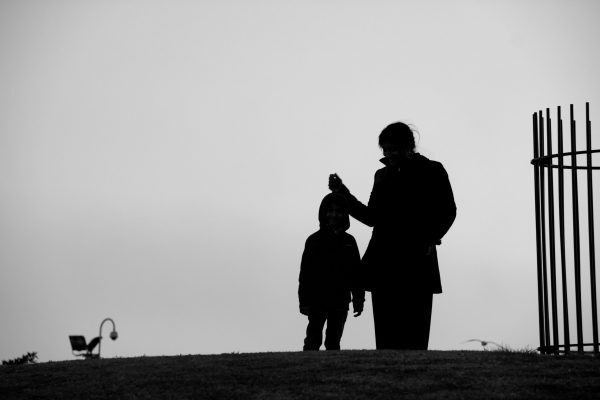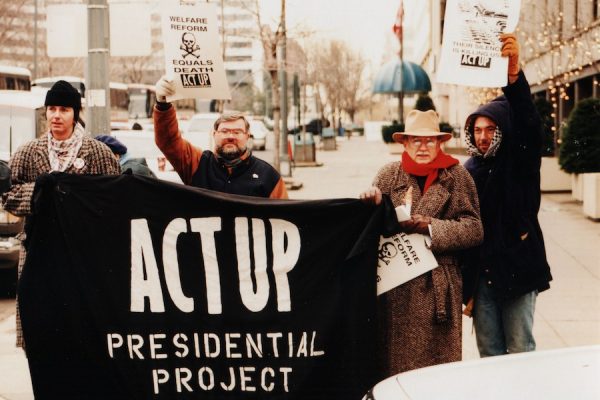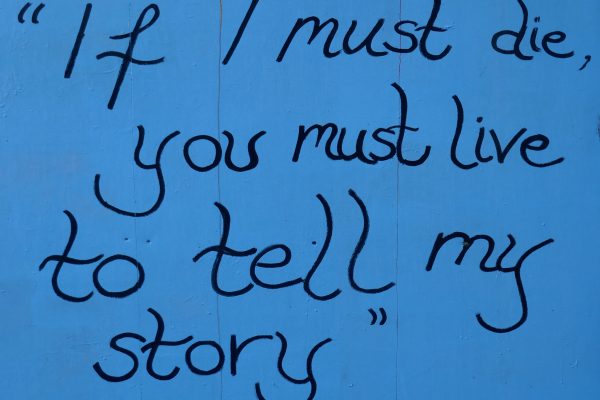I was in Ambler, Pennsylvania last week researching the social history of the small textile milltown my great-grandfather settled in after being mustered out of his Civil War Colored Infantry Regiment (the 24th) and in which I was reared. While there, I read Rev. Eugene Rivers’ very interesting article “Beyond the Nationalism of Fools.” Just before leaving for Ambler, my colleague Prof. Michael Hanchard called asking me my reaction to the Rivers article. So I sat down at my typewriter Friday evening (July 7th) while spending the night visiting my alma mater, Lincoln University, just 90 miles south of my hometown, and sent Prof. Hanchard the following reactions to the Rivers article —
My dear Michael: I just quickly looked at the Rivers piece in the current Boston Review. It’s fine for what it does — namely, put-pin-under Black intelligentsia regarding lack of any sustained connectedness between it and the needs of 30% of Black folk who are poor. Beyond this pin-pricking function, I would choreograph it rather differently. Not as a new-mode Black nationalist discourse issue but as a Black community uplift issue, a Black-out-reach-to-Black issue. For me, all variants of Black nationalist modalities have spent-their-load, as it were, whether here in US, in the Caribbean, or in the many African states where it is fully bankrupt. We who are progressive politically and cosmopolitan-humanistic ethically shouldn’t be involved in reviving neo-nationalist modes among Black folks. Especially in a post-industrial era and post-Soviet bloc era when nationalist modes are fueling a new interethnic barbarism. Then, too, we’ve got an emergent White-nationalist dynamic here in US — this being one way to characterize neo-racist patterns among Whites — and we Blacks shouldn’t be adding in any way to ethnocentric discourse, it seems to me, even that of uplift-Black nationalist sort if not tempered pragmatically. Warmest, Martin Kilson
Now that I’m back in my office let me make a brief addendum to my comments to Prof. Hanchard. Rivers’ piece was factually very careful and extremely informative on the many layers of nationalist patterns that have sought to bring visibility to Black realities that rigid, vicious, and authoritarian White supremacist American processes had massively “pariahized” and victimized from the 1880s through the 1960s. But his account suffers from a naive nostalgia for that vibrant Afro-ritualism that all Black nationalist variants master and revel in (whether here, the Caribbean, Africa, or soon, perhaps, in Latin America and Europe), though he rightly excludes from this the twisted xenophobic nationalism represented by Farrakhan, Jeffries, et al..
Like many other sympathetic analysts of Black nationalist patterns (e.g., Harold Cruse), Rivers and his camp mistake the carefully calibrated mask of Afro-ritualism (calibrated often through presumptively institutionalizing hierarchies and agencies — whether under secular leaders like Garvey or sacred leaders like Cleage) as a stepping-stone to modernization. Or, put another way, as a stepping-stone to three pillars of modernization: 1) resource-harnessing, 2) problem-solving, and 3) authoritative-accountability. As a leader-follower methodology (one that Prof. Jerry Watts and I have spent lots of time trying to understand), Afro-ritualism is steeped in an Afro-charismatic leadership pose — a pose that, while apparently appropriate to relations between leaders and followers, is less adequate to the tasks of facilitating (or let’s say approximating) the three pillars of modernization. Rivers doesn’t even begin to scratch the surface of this conundrum . . . .
In failing this, Rivers’ article is also to be faulted for repeating the view — as sympathetic analysts of Black nationalism usually do — that the mainstream Black leadership (I classify this category as “pragmatic-activist,” Rivers classifies them as “integrationist” ) have lacked what he considers a culturally valid leader-follower methodology. Put otherwise, Rivers, Cruse, and other sympathetic analysts of Black nationalism fault the mainstream Black leadership (from Douglas/DuBois down to the present) for shunning Afro-ritualism. Thus, opines Rivers, now that the progressive, civil rights policy breakthroughs of the 1960s (breakthroughs that have put about 70% of Black households near the middle-class and produced the first viable professional intelligentsia ever) are targeted by neo-conservative White supremacist revival under the Republican party and with-a-little-help-from-Democratic-friends, what Rivers calls “integrationist strategies” are exhausted. Let’s, therefore, retreat to square one — Black nationalism — for, so Rivers thinks, it at least has a culturally valid leader-follower methodology. It make African-Americans feel good, in short.
Rivers, Cruse, and others who adopt this analytical perspective are mistaken. Mistaken because they don’t have a deep enough understanding of the dysfunctions of Afro-ritualism as leadership — and calling on the curious Eugene Genovese does not help the case very much. Mistaken, too, because the pragmatic-activist sector of African-American leadership (the mainstream sector in this century and now) did not, as Rivers thinks, ignore what elsewhere I have called the “social-organization leadership” function while obsessively pursuing the “guidance-leadership” (protecting Blacks’ honor/status and civil rights-enhancing) function.[1] From DuBois to Lester Granger, from Granger to Roy Wilkins, from Wilkinsto Rev. Martin Luther King, Jr., from King to Rev. Jesse Jackson, and from Jackson to some 8,000 Black elected officials, the pragmatic-activist sector of African-American leadership has performed both the “social-organization leadership” function and the “guidance-leadership” function.
Those favoring the Booker T. Washington leadership paradigm (a simple-minded clientage dependence on the “social-organization leadership” function while ignoring the “guidance-leadership” function) have propagated this view of the mainstream Black leadership ever since Washington died in 1915. But that’s no reason why Rev. Eugene Rivers, Harold Cruse, and others should hang on to it. In doing so, they find themselves still fighting a mirage of hapless integrationist Black leadership. Whatever their limitations — and there are indeed some — mainstream Black leaders (the skilled and sophisticated pragmatic-activist sector) have no resemblance to this mirage of hapless integrationists. I can tell my friend Rev. Eugene Rivers and my friend Prof. Harold Cruse that the mainstream Black leadership is not Black folks’ problem today. Black folks and weak White folks (weak redneck-WASPS, weak-workingclass Irish, Poles, Italians, Hispanics, etc.) have the same problem — namely, the neo-Robber Baron and neo-plutocratic capitalist strata who from the Reagan administration onward, have, with the aid of skilled neoconservative intellectuals and professional cadre, fashioned economic and political hegemony over American life, and bid to fashion same over global life. Neo-Black nationalist discourse is of little moment under these conditions. At least the mainstream Black leadership recognizes this . . . .





